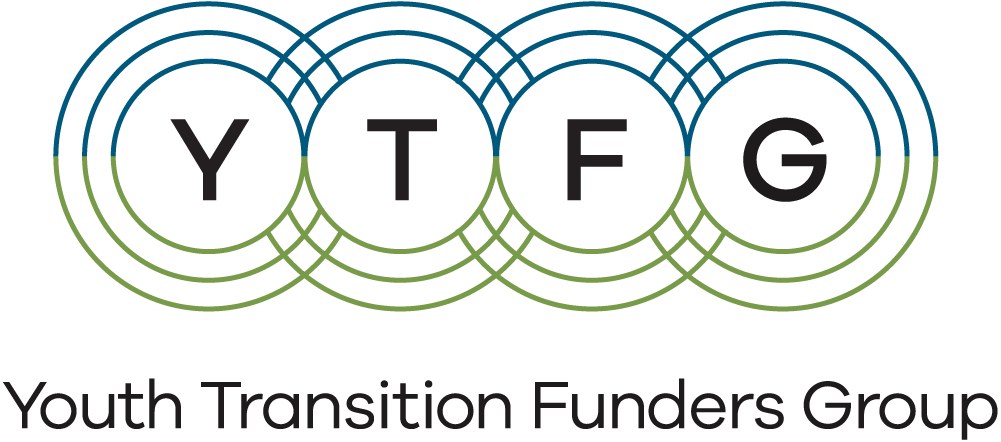Reflections from the Community-Systems Partnership Learning Series
By Vannesa Santos
My name is Vannesa and I’m a YTFG Fellow. My first YTFG project was supporting the development and delivery of a four-part learning series for YTFG members focused on community-systems partnerships. In this blog, I'll be sharing my thoughts and reflections from my participation in the learning series.
One speaker that we learned a lot from was Octavia Shaw, who works for the Child and Family Services Agency (CFSA) in Washington, D.C. This was particularly interesting for me because I have personal experience with the child welfare system in Los Angeles County. I learned that in D.C., they look at protective factors in families and communities, provide upstream prevention services, and help protect the families and children they serve. This is critically important for organizations to do because many people like me grow up thinking that public agencies, despite being a well-intentioned effort to protect people, are unfairly removing children from their families and instilling fear in them rather than offering compassion and support. I remember my biological mother advising me to keep information about our family within our family, as the child welfare agency could use that information against us. They were not viewed in our community as a partner offering support or worthy of our trust.
In the learning series, we also heard from Cheri Craft, who is the CEO and founding Executive Director of Smart from the Start, which is one of the family support centers funded by CFSA. Cheri described her workplace as one that reflects “no medical model", and said: “People don’t know that strengths exist within themselves." In my opinion, it seems that most of the time when tension surfaces, we are focused on the negative side of what went wrong, blaming ourselves, and blaming others. Cheri’s organization works with individuals by introducing them to their strengths because they understand that getting somewhere could be a struggle for them. In my own experiences, there was a time when I could not afford public transportation, let alone feel motivated to reach out and ask for help, and I remember I would constantly be redirected to apply elsewhere. This made my strength feel weakened. Getting somewhere or doing something was a struggle.
Octavia described the tension in her workplace as "You do the same thing, you get the same results.” In her agency, they approach their work as a collective body, in a collaborative effort, and require power-sharing through their grants, requiring that “50% of members should be from the community.” They are involved in the decision-making, co-design, trust-building work with organizations, and focus on the approach "WE ARE FAMILY.” This is similar to how I built rapport with my clients when I used to work for a nonprofit mental health agency as a Peer Partner. My unique role was to support the well-being of children, youth, and their families. As a front-line worker, I was giving back to a community that I was raised in and I had a good understanding of the culture and living conditions. I remember the rapport I had with clients allowed us to practice their treatment goals, see progress, and most importantly, help clients recognize their strengths.
We learned that the work at CFSA involves internal research and customizing what works for D.C. These results show that upstream efforts led to a reduction in the number of children in foster care from 3,000 to 700. They focus on areas such as "How can they go to the next person to care for the kids, are there services where the kids are living?" I applaud them for this milestone and hopefully many more to come. It's great to see how they're taking into account the children's needs rather than just placing them anywhere they can. The foster mother I had in one of my placements was unable to provide me with mental health support and referred me instead to my social worker, whom I rarely saw.
The conversation with CFSA and Smart from the Start also focused on wellness and well-being. When asked how the work promotes well-being, Cheri answered that they are trying to address “pervasive hopelessness” and argued that systems were set up to keep people in the same place, perpetuating historic generational trauma. She said “we must address the stress,” adding that Smart from the Start uses traditional group therapy and they also hire therapists of color.
Octavia added that “it starts with employees," and talked about the importance of a wellness culture within public systems.
In my opinion – yes, those are all facts. For me, historical trauma has looked like struggling more than others, facing chronic homelessness, and having the system fail me several times. Advocating for myself and others has been my way to cope and navigate life.
I hope that those who are serving youth in their transition to adulthood will consider the whole person and how they can both build protective factors while also mitigating and preventing risk factors. The YTFG Well-Being Framework is a great tool for assessing and supporting your own organization in carrying out the vision for a holistic approach to well-being for our nation’s young adults.
